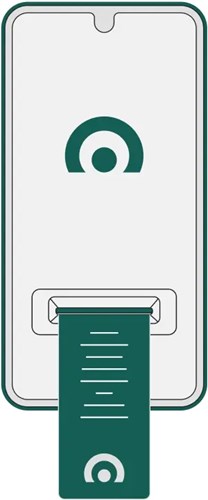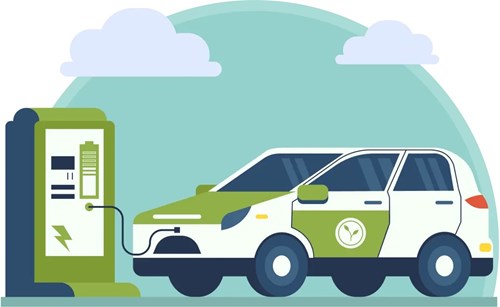Fast Travel: Sustainability in Taxi Operations
The Green Revolution

The transportation industry has long been a major contributor to environmental issues, from air pollution to CO2 emissions. However, as awareness around sustainability grows, so does the demand for eco-friendly solutions across all sectors, including taxi operations. Eco-friendly vehicles, sustainable transportation practices, and green technologies are changing how taxis operate. Let’s explore how taxi services are evolving, and take a look at Fast Travel's efforts in sustainability.
The Rise of Eco-Friendly Taxis
 The adoption of eco-friendly taxis marks a significant shift in the transportation sector. Traditionally, taxis have relied on fossil-fuels-powered vehicles, contributing heavily to emissions and air pollution. However, many cities and taxi operators are now transitioning to eco-friendly cars like electric vehicles (EVs) and hybrids, which significantly reduce emissions.
The adoption of eco-friendly taxis marks a significant shift in the transportation sector. Traditionally, taxis have relied on fossil-fuels-powered vehicles, contributing heavily to emissions and air pollution. However, many cities and taxi operators are now transitioning to eco-friendly cars like electric vehicles (EVs) and hybrids, which significantly reduce emissions.
These eco-friendly vehicles offer substantial benefits. For example, electric taxis produce zero tailpipe emissions, which can drastically reduce the carbon footprint of taxi services. Hybrid cars combine electric power with traditional engines, optimizing fuel efficiency and lowering emissions. For cities battling poor air quality, eco-friendly taxis present a critical solution to reducing their environmental impact.
Governments and local authorities are increasingly offering incentives for taxi operators to adopt sustainable transportation practices by providing tax breaks, subsidies, and other financial support. This, combined with growing consumer demand for green services, is driving a shift toward sustainable taxi services in many parts of the world.
We, at Fast Travel, are committed to sustainability efforts. How exactly? Let’s take a look together.
Driving a Greener Future With Fast Travel

When we first partnered with Oslo Airport, fewer than 15% of the taxis operating at the airport were zero-emission vehicles, and the waiting areas were filled with idling engines, contributing to unnecessary CO2 emissions.
Today, up to 75% of all taxi trips at Oslo Airport are serviced by zero-emission cars, greatly reducing the carbon footprint of each journey.
Learn more about Oslo Airport success story
Reducing Idle Time and Emissions
Another significant step toward sustainability has been our effort to cut down on unnecessary taxi idling. Previously, the taxi waiting areas were clogged with cars idling for hours. This created a major source of emissions. In response, we re-engineered our process: now, taxis only enter the waiting area when a booking is confirmed. This simple change has drastically reduced both idle time and emissions, making our operations much more efficient and eco-conscious.
Embracing Digital Receipts
 Going paperless is another way we are reducing our environmental impact. By switching to digital receipts, we’ve eliminated the need for printed paper receipts, helping to save trees and reduce waste. All verification and receipts are now sent directly to passengers' smartphones. This initiative reflects our ongoing dedication to finding innovative ways to minimize our carbon footprint and contribute to a greener future.
Going paperless is another way we are reducing our environmental impact. By switching to digital receipts, we’ve eliminated the need for printed paper receipts, helping to save trees and reduce waste. All verification and receipts are now sent directly to passengers' smartphones. This initiative reflects our ongoing dedication to finding innovative ways to minimize our carbon footprint and contribute to a greener future.
Fast Travel’s sustainability journey is far from over. We’re committed to continuous innovation and investment in sustainable taxi services that not only meet the needs of today’s passengers but also prioritize the long-term health of our planet.
The Role of Sustainable Transportation Practices
Beyond adopting eco-friendly cars, true sustainability requires integrating sustainable transportation practices across operations. This includes strategies like efficient route planning, ride-sharing options, and smart queuing systems that minimize fuel consumption and reduce emissions.
Smart queuing systems, like the one Fast Travel introduced at Oslo Airport, are part of a broader effort to optimize taxi operations for efficiency and environmental consciousness. By reducing idle time and better managing taxi demand, we not only cut emissions but also improve the overall passenger experience.
Challenges and Opportunities in Taxi Sustainability
Many operators are finding that the long-term savings in fuel costs, maintenance, and government incentives make EVs a more attractive option in the long run. However, there are some challenges in adopting eco-friendly vehicles.
Charging infrastructure is one of such challenges, as electric taxis require accessible charging points to stay operational. Cities that invest in charging networks and incentivize EV adoption will play a critical role in the transition to a more sustainable taxi industry.
Also, the charging time of EVs remains a challenge as well. Although not a problem for most people, taxi drivers drive a lot, and is not in control of how long their next trip will be. This particular difficulty is yet to be solved.
Despite these challenges, the taxi industry’s embrace of eco-friendly taxis and sustainable transportation practices shows promise. Operators who invest in green technology not only reduce their environmental impact but also position themselves to meet the growing demand for sustainable services from passengers.
Conclusion
By adopting sustainable transportation practices, taxi operators can play a crucial role in reducing global emissions and creating cleaner, more efficient urban environments.
The eco-friendly taxi revolution is here, and it’s only the beginning.
 About Fast Travel
About Fast Travel
Fast Travel offers an innovative Taxi Management System (TMS) for high-traffic areas like airports, improving taxi flows and enhancing passenger satisfaction with a rate of over 85%. The system can be implemented as a stand-alone solution or integrated with existing TMS infrastructure.






Comments
There are no comments yet for this item
Join the discussion